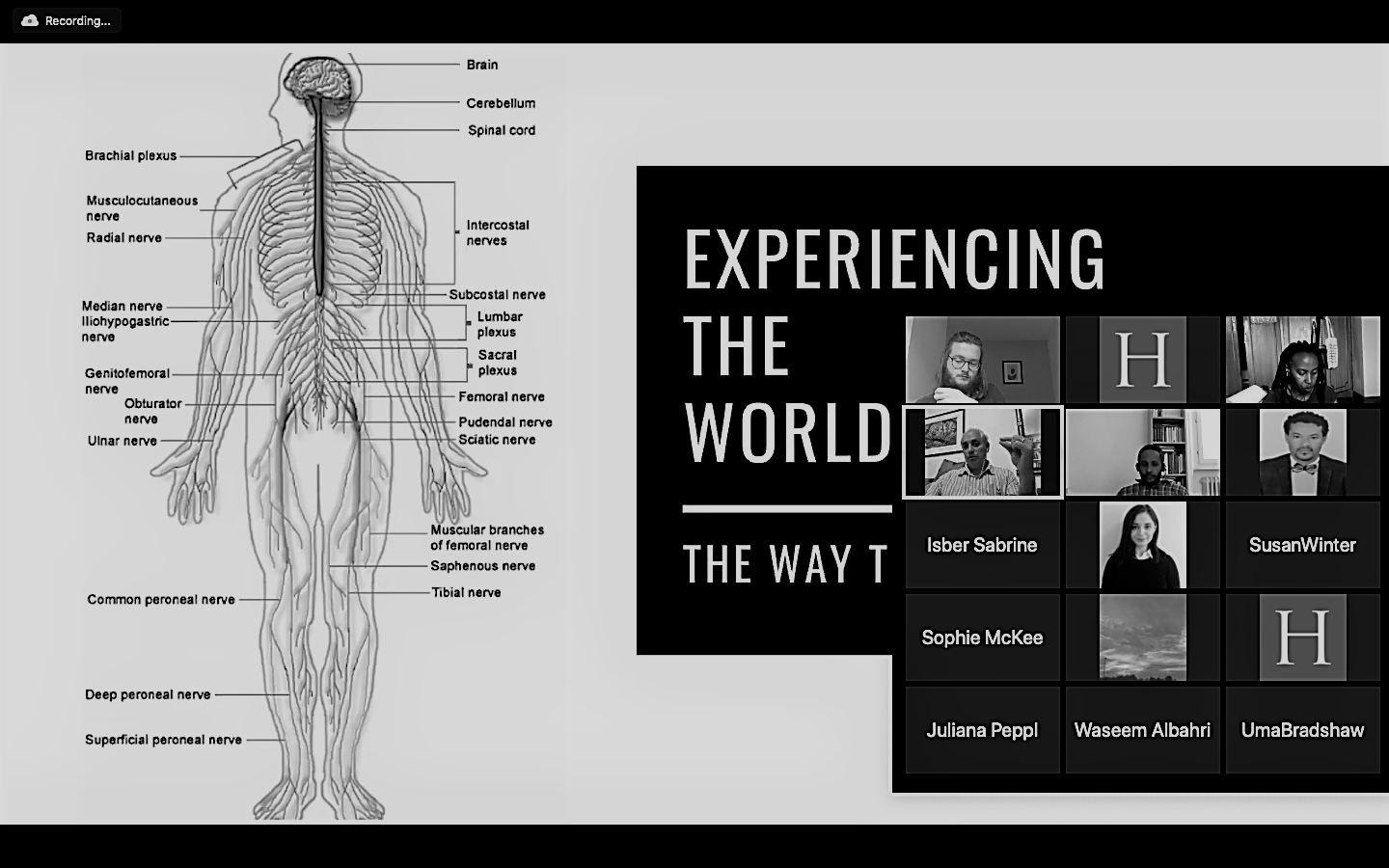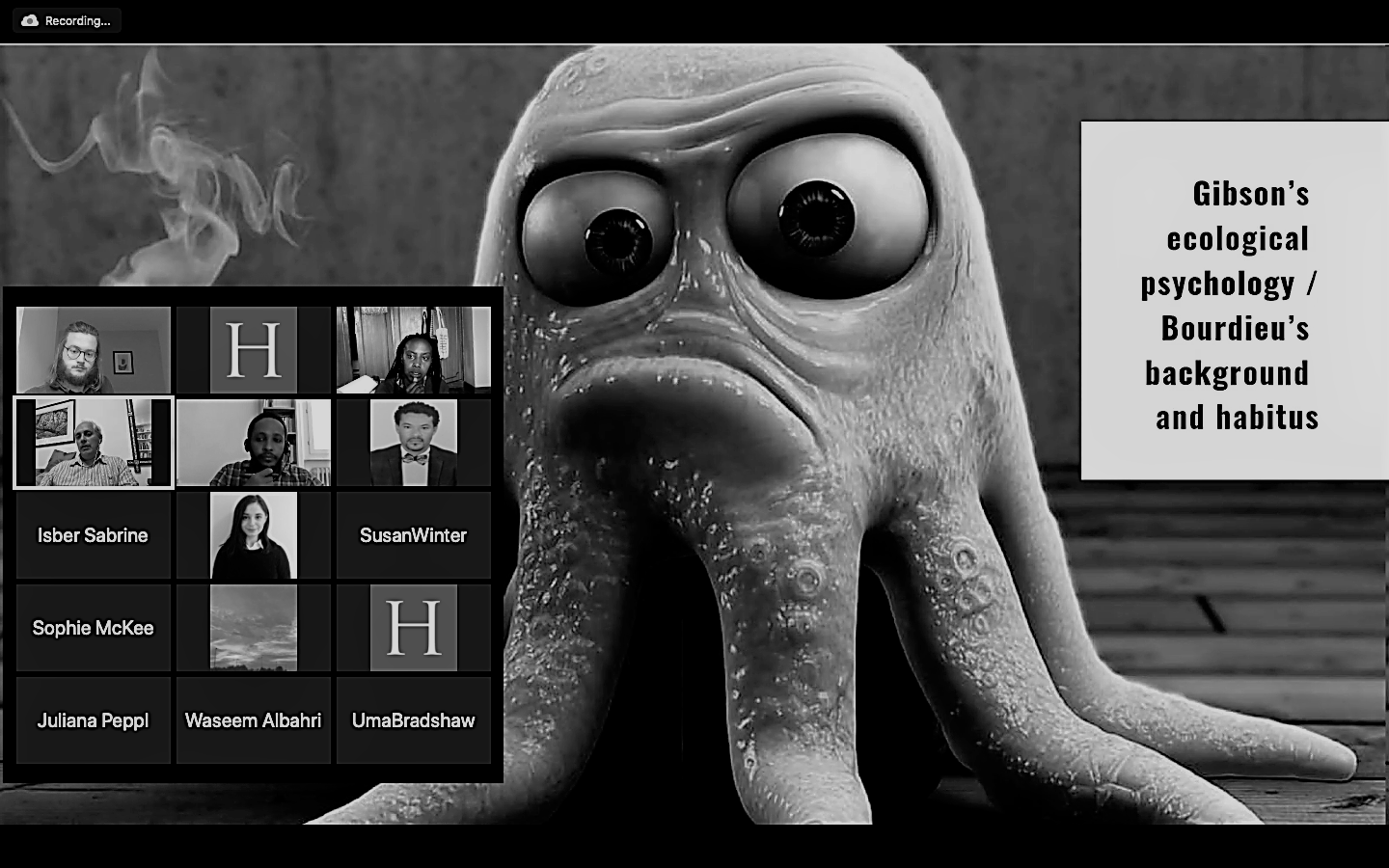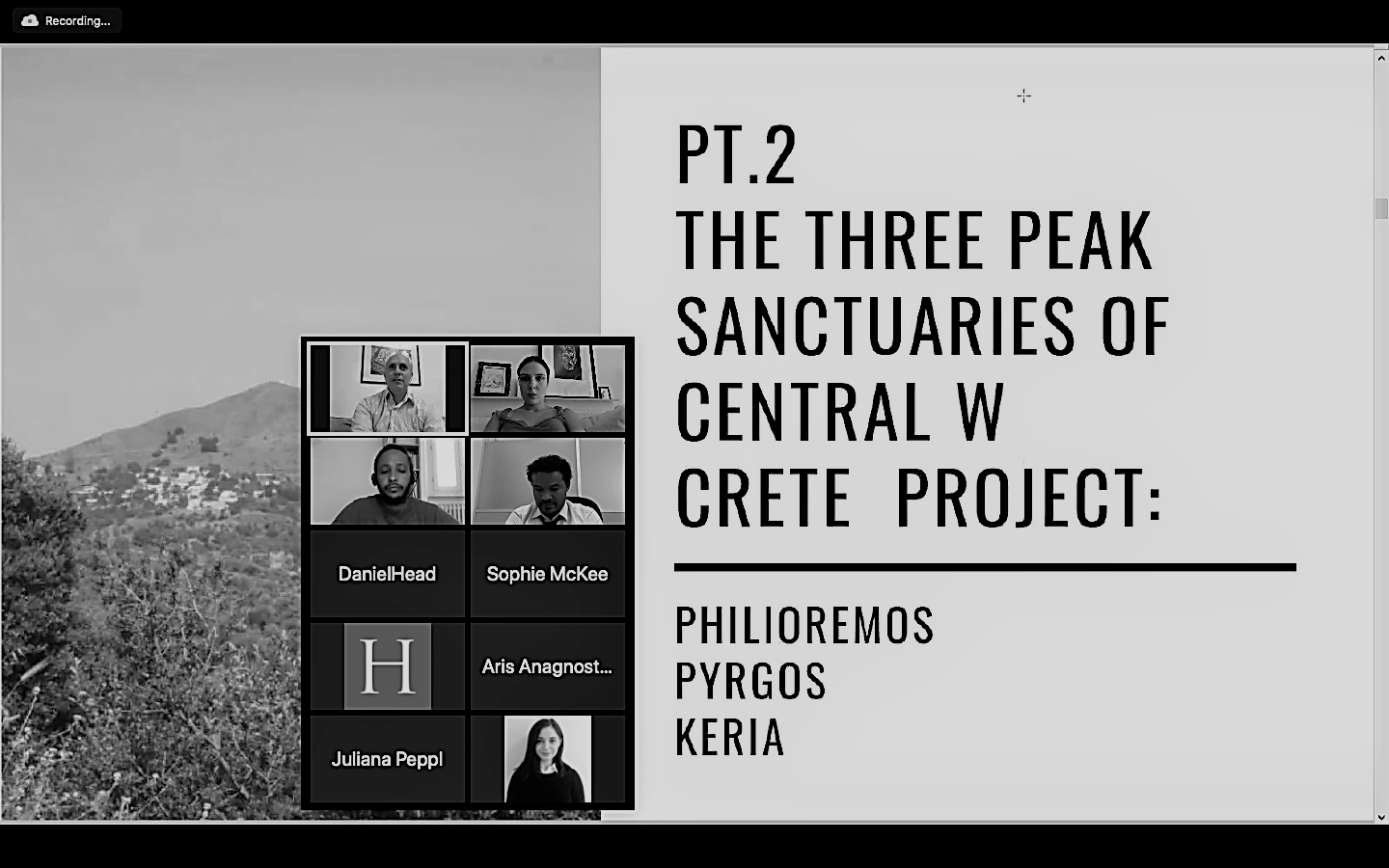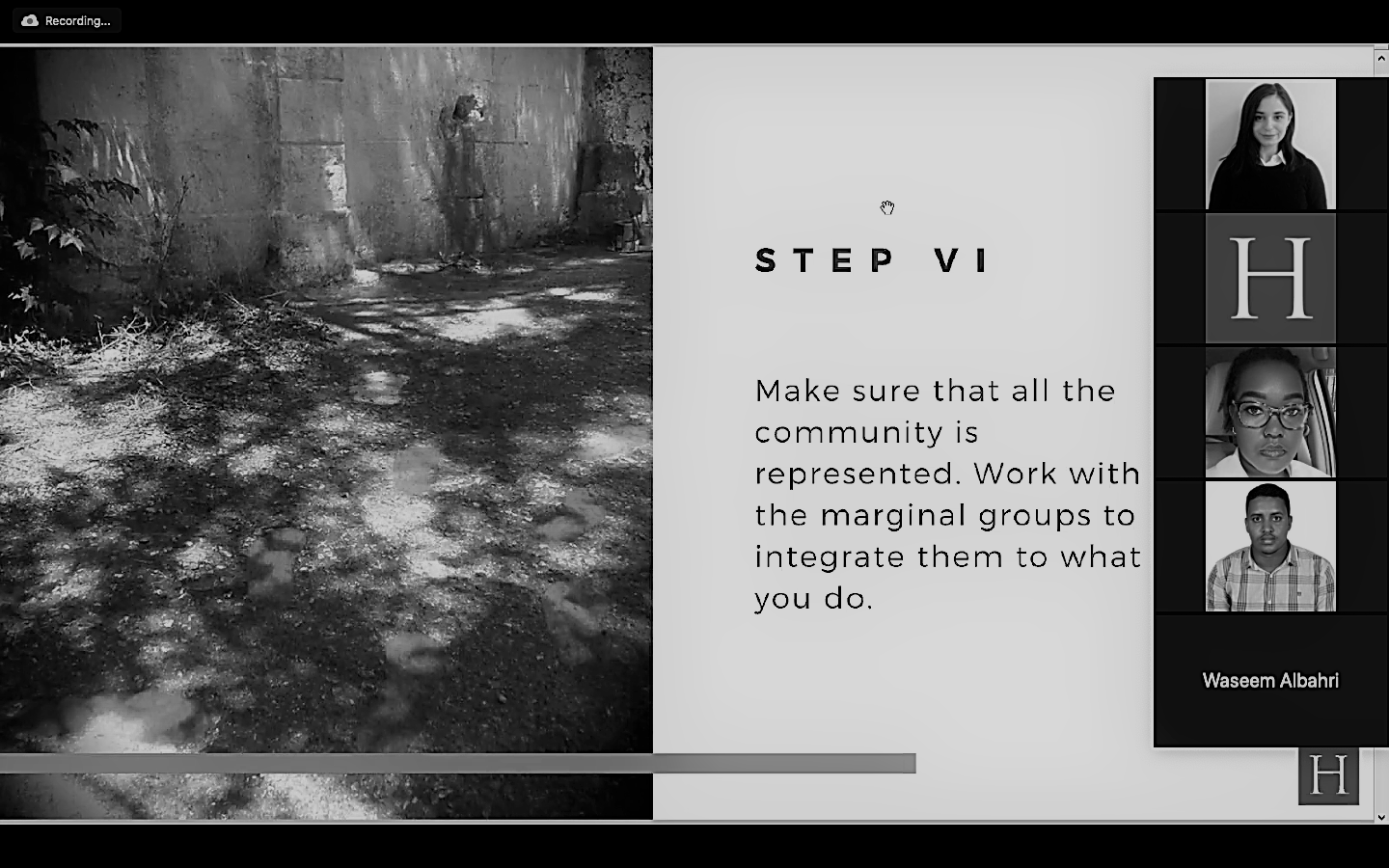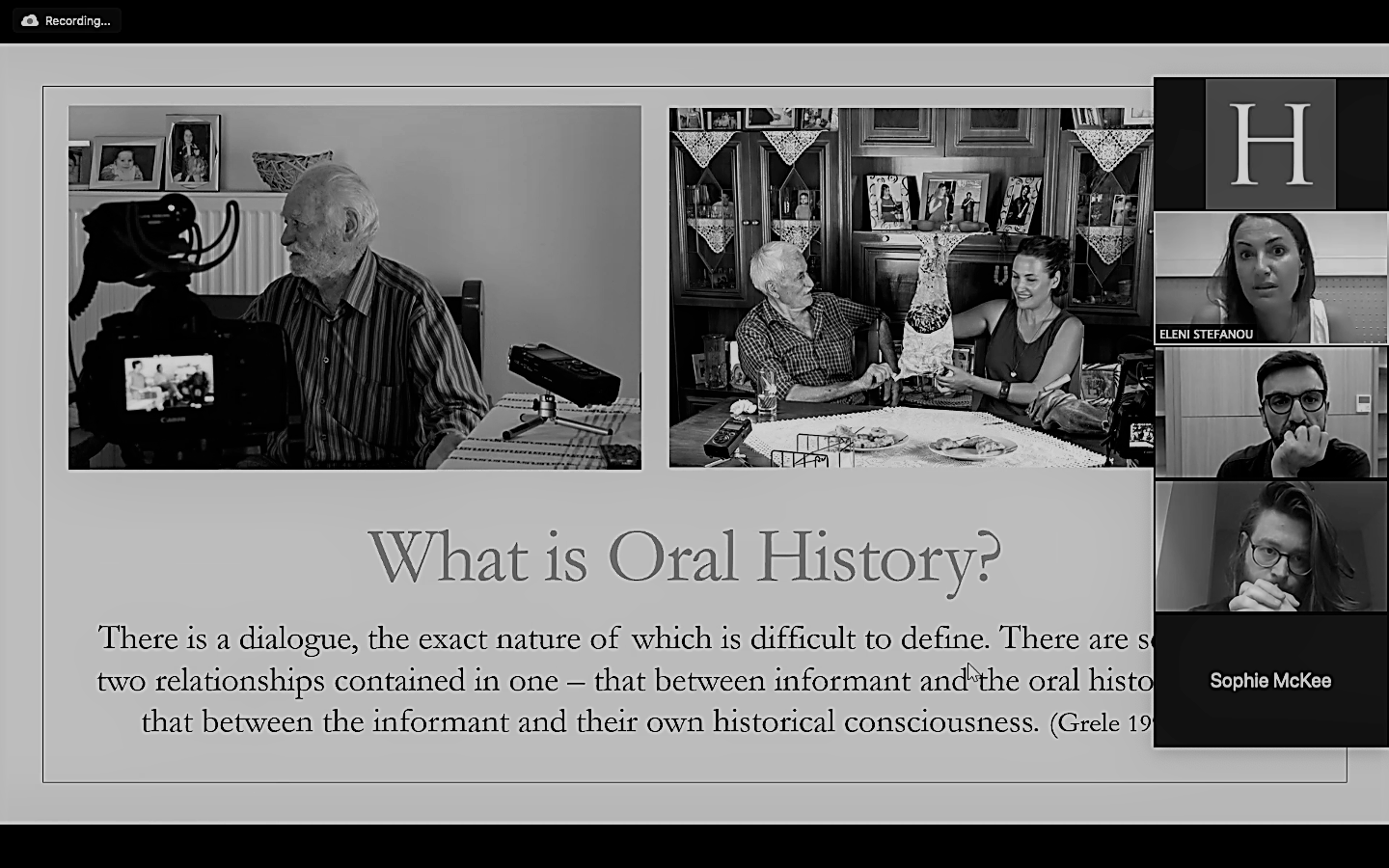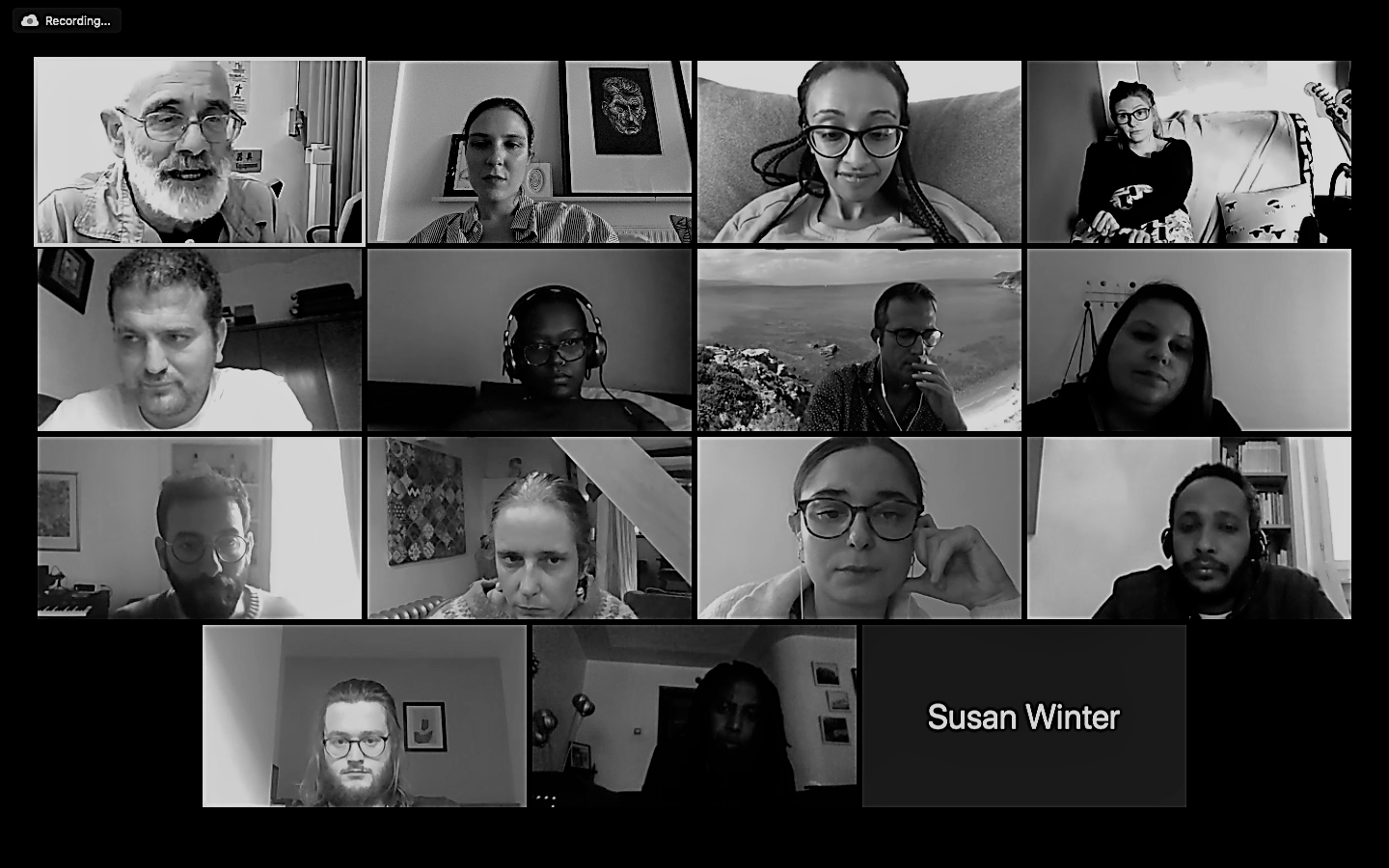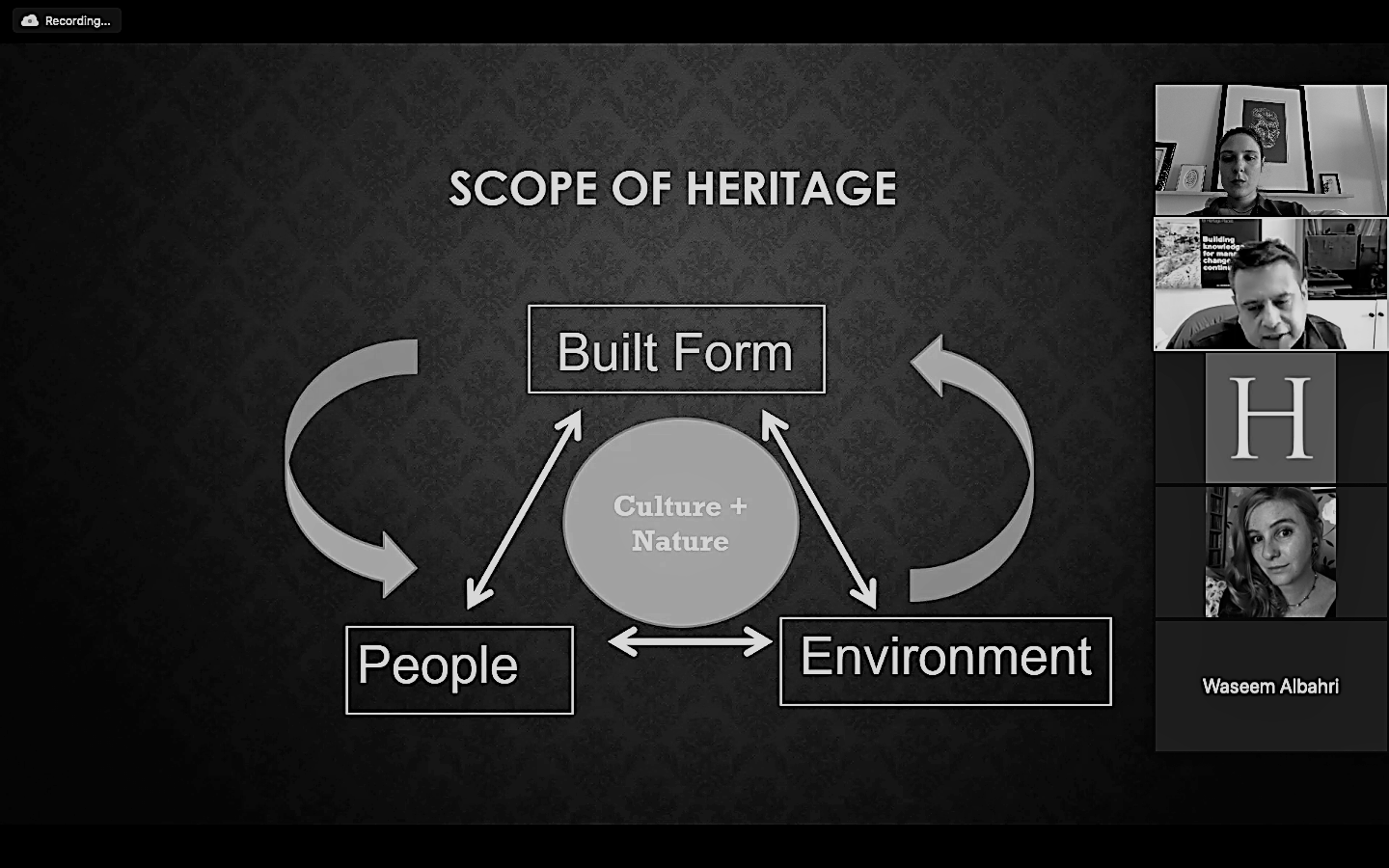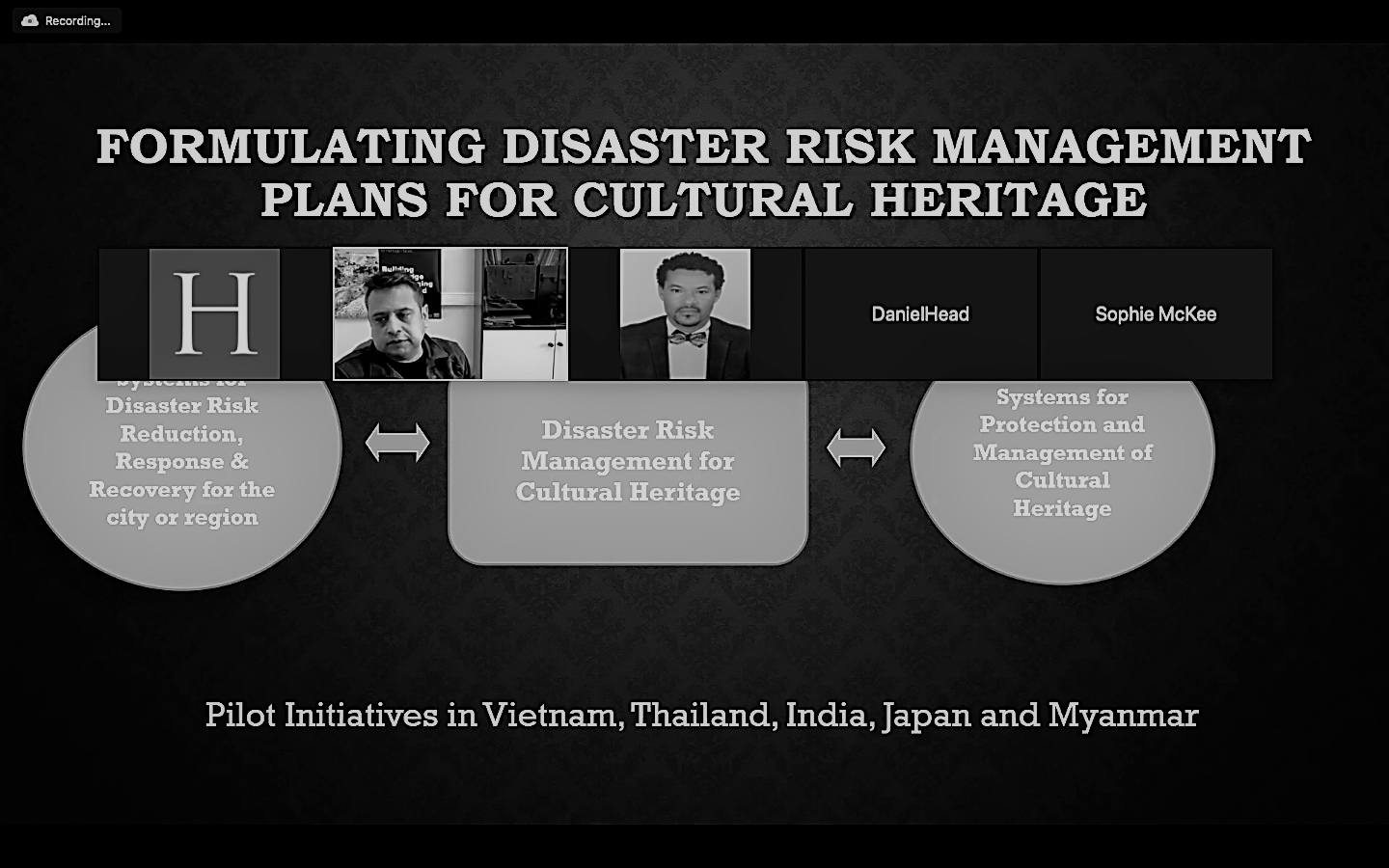British Council Cultural Protection Fund Workshop on Heritage Management
The Heritage Management Organization (HERITΛGE) in collaboration with the British Council’s Cultural Protection Fund in partnership with the Department for Digital, Culture, Media and Sport organized a 8-day workshop, with 11 meetings in total, to train 22 heritage managers of British Council staff and collaborative network in heritage management; engaging of local communities; heritage, risk and climate change; disaster management. The online workshop on “Heritage Management” took place 5 – 20 October, 2020. Distinguished in their field professionals and academics conducted the various specialist courses.
Course 1
Dr Evangelos Kyriakidis, fsa, Senior Lecturer in Aegean Prehistory at University of Kent, Canterbury and Director of HERITΛGE.
Introduction to Heritage Management
In this short workshop we go through the main element of what we manage: heritage values. Heritage values for the same piece of heritage are fluid, they change from person to person and through time, so much so that it is hard to talk about communal values, or shared values. We look at the main ways that values are constructed or are changing and we explore a little more the values of a piece of heritage we care about.
In the second part of the workshop we discuss outstanding universal values. This is a UNESCO introduced concept that can be very useful for any piece of heritage. Through this part of the workshop we aim to give confidence to heritage managers so that they understand the importance, the relevance and the functionality of the heritage they manage for the benefit of their constituencies. The relevance of the values of their heritage is a very important concept that can be liberating for heritage managers, not only in that they will quickly understand the ways to discuss their own heritage, but also ways to promote it and engage with multiple stakeholders in the management of local heritage.
Course 2
Dr Aris Anagnostopoulos, Honorary Lecturer at University of Kent and Public Director at HERITΛGE.
Dr Lena Stefanou, Cultural Organizations Management MSc at Hellenic Open University and Public Officer at HERITΛGE.
Community Engagement
Community engagement gradually becomes a mainstay in the public programs of heritage institutions worldwide. A variety of methods and good practices have been developed to successfully engage the bewildering variety of communities and publics that such institutions address. Still, the uncritical application of “toolkits” for effective engagement is perhaps not the ethically appropriate way to incorporate cultural difference in the field. In this online program, we aim to develop a different approach to community engagement, that is based on social (and art) research with community-led initiatives. Research-led practice can lead to collaborative design and collaborative actions that are better suited to the cultural and social particularities of each milieu and each specific group or community and its relation to others. This course draws from our long experience with community engagement through heritage and will discuss several examples from our own and other work.
During the course, participants will familiarize themselves with the context of community engagement through heritage, will discuss methodologies based on ethnography and oral history and will engage in practical exercises. The duration of the online course is three days, with six meetings in total, and enough time to complete assignments in between online meetings.
Course 3
Dr Peter Brimblecombe, Distinguished Research Chair Professor at Department of Marine Environment and Engineering, National Sun Yat-Sen University, Kaohsiung, Taiwan. Aerosol Science Research Center, National Sun Yat-Sen University, Kaohsiung, Taiwan.
Adjunct Professor at School of Energy and Environment, City University of Hong Kong. Emeritus Professor at School of Environmental Sciences University of East Anglia Norwich, UK.
Climate Change, Heritage and Risk
This course seeks to introduction students to the way in which weather, air pollution and climate change can affect our tangible heritage. It will distinguish the normal effects of weathering from those imposed by a changing climate or shifts that occur through air pollutant management. A sense of scale is important, so it is necessary to consider the individual materials that constitute heritage and the way the physical effects of weathering or corrosion and blackening by pollutants affects the artistic and evidential value; through to likely impacts on sites and the landscape that surrounds them. Climate change may particularly affect the context of heritage and the way visitors experience it. In a changing world, careful maintenance, stakeholder engagement and strategic planning become ever more important.
Course 4
Dr Rohit Jigyasu, Project Manager, Urban Heritage, Climate Change & Disaster Risk Management, Programme Unit
(2018-2020) at ICCROM and Vice President (2017-2020) of ICOMOS.
Disaster Management
Cultural heritage is increasingly vulnerable to disasters caused by natural and human induced hazards such as earthquakes, floods, fires, terrorism, looting etc. Climate Change has further exacerbated the frequency and intensity of disasters. Therefore, it is important to build the capacity of heritage institutions as well as well those who support disaster response and recovery so that they can take adequate decisions for pre-disaster mitigation and preparedness,
emergency response and post disaster recovery. This also requires understanding of the methodology for undertaking a multi-hazard risk assessment for prioritizing various actions.
Moreover, it is crucial to identify various stakeholders and ensure better coordination between heritage and disaster risk management sectors. The workshop aimed at raising awareness of the participants on the key principles and methodologies for managing disaster risks of cultural heritage sites and institutions.

